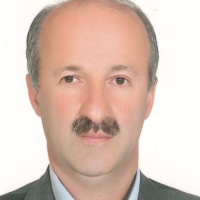Promotion of wood production of some poplar clones using sprouts management in Karaj
Author(s):
Article Type:
Research/Original Article (دارای رتبه معتبر)
Abstract:
Pruning some of the sprouts of poplar clones in short rotation system causes the left sprouts use more minerals, light, water and finally they have thicker and taller trunks. The aim of this project was to evaluate the poplar clones by using sprouts management method in the second harvesting period. This study was carried out on five poplar clones of P. deltoides and P. x canadensis with 3 treatments (1, 2 and multi sprouts) using statistical split plot design with 3 replicates. At the end of the growing season, growth characteristics of trees and at the end of period the woods such as branches, trunks to a diameter of 10 cm and trunks to a diameter more than 10 cm were measured. Analysis of variance results of growth characteristics at the end of period after the second harvesting indicated that diameter at breast height (dbh) and height of sprouts showed significant differences in type of clone and sprout management treatments and dry biomass of branches and trunks to a diameter more than 10 cm in sprout management treatment. Height of sprout, height of the tallest sprout and dbh were in first group in clones of P. d. 63/8 and P.x 561/41. Mean comparing for dry biomass showed that P. d. 63/8 and P.x 561/41 clones with 6.7 and 6.4 t. ha-1yr-1, respectively, obtained the highest dry biomass in a diameter lower than 10 cm. Also, the highest results of trunk production with a diameter more than 10 cm were observed in 1 sprout treatment.
Keywords:
Language:
Persian
Published:
Iranian Journal of Forest, Volume:10 Issue: 1, 2018
Pages:
79 to 88
https://magiran.com/p1836909
مقالات دیگری از این نویسنده (گان)
-
Land suitability evaluation for poplar plantation
H.R. Abbasi *, F. Khaksarian, R. Bagheri, A. Salehi, F. Asadi
Iranian Journal of Forest, -
Destruction of Populus caspica natural habitats in the riverside Hyrcanian forests of and strategies to get out of it
Pedram Ghadiripour *, , Moslem Akbarinia, Omid Esmailzadeh, Abbas Ghamari Zare
Iran Nature,


